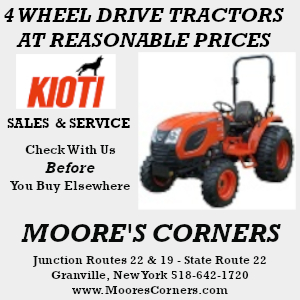
Obesity is not only a concern for humans but also for our beloved furry companions. The rising incidence of pet obesity is a pressing issue, affecting their overall health and well-being. In this article, we will explore the problems associated with pet obesity and discuss effective ways to tackle this growing concern, ensuring our pets lead healthier and happier lives.
The Problems of Pet Obesity
Health Risks
Obesity predisposes pets to a range of health problems, including diabetes, heart disease, joint issues, respiratory difficulties, and decreased lifespan. Excess weight places strain on their organs, leading to a diminished quality of life and potential complications.
Reduced Mobility
Carrying excess weight puts significant stress on a pet’s joints and bones, hindering their mobility and making physical activities more challenging. This can result in a sedentary lifestyle, leading to muscle loss and a decline in overall fitness.
Impact on Emotional Well-Being
Obese pets may experience reduced energy levels, which can affect their enthusiasm for playtime and social interactions. This can lead to boredom, anxiety, and depression, impacting their mental well-being.
Increased Medical Expenses
Obesity-related health conditions necessitate frequent veterinary visits, medication, and specialized diets, leading to increased financial burdens for pet owners. Preventing obesity through proper weight management can help reduce medical expenses in the long run.
Ways to Reduce Pet Obesity
Balanced Diet
Consult your veterinarian to determine the appropriate portion sizes and nutritional requirements for your pet’s age, breed, and activity level. Choose high-quality pet food that provides the necessary nutrients without excessive calories. Avoid free-feeding and stick to regular mealtimes.
Controlled Feeding
Measure your pet’s food accurately to prevent overfeeding. Use a designated measuring cup or a kitchen scale to ensure portion control. Avoid feeding them table scraps or high-calorie treats, and instead opt for healthier alternatives or incorporate treats into their daily calorie intake.
Regular Exercise
Engage your pet in regular physical activities to help them burn calories, strengthen muscles, and maintain a healthy weight. Take them for daily walks, engage in interactive play sessions, and provide mentally stimulating toys that encourage movement.
Monitor Body Condition
Regularly assess your pet’s body condition to ensure they are within the healthy weight range. Use a body condition scoring system recommended by your veterinarian to gauge their overall fitness. If you notice weight gain, consult your veterinarian for guidance on adjusting their diet and exercise routine.
Enrichment and Mental Stimulation
Obesity can sometimes be a result of boredom or emotional eating. Provide your pet with plenty of mental stimulation through interactive toys, puzzle feeders, and playtime. This will help divert their attention from food and keep them mentally engaged.
Veterinary Check Ups
Schedule regular veterinary check-ups to monitor your pet’s weight and overall health. Your veterinarian can provide guidance on nutrition, weight management, and any specific dietary needs your pet may have.
Support and Consistency
Engage the entire family in promoting a healthy lifestyle for your pet. Encourage consistency in feeding schedules, exercise routines, and avoid “cheat days” that may lead to overfeeding.
Conclusion
Pet obesity poses numerous health risks and challenges for our beloved companions. By understanding the problems associated with pet obesity and implementing effective strategies such as a balanced diet, controlled feeding, regular exercise, and mental stimulation, we can combat this issue and improve the overall health and well-being of our furry friends. With proper weight management, we can ensure that our pets lead long, active, and fulfilling lives. Remember, your veterinarian is an invaluable resource for guidance and support in addressing pet obesity and tailoring a personalized plan for your pet’s specific needs.
Additional Information
For additional information visit the Association for Pet Obesity Prevention.
Related Articles & Free Email Newsletter Sign Up
7 Inexpensive DIY Pet Care Tips
How to Identify and Treat Mange in Dogs and Cats




Comment here